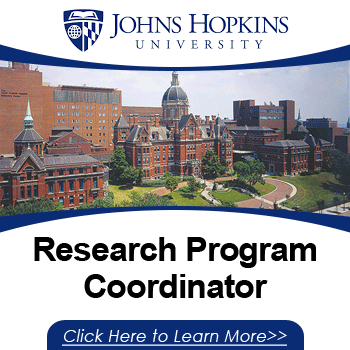Postdoctoral Fellow - Ivashkiv Lab
Job Description
Overview:
How you move is why we’re here. ®
Now more than ever.
Now more than ever.
Get back to what you need and love to do.
The possibilities are endless...
Now more than ever, our guiding principles are helping us in our search for exceptional talent - candidates who align with our unique workplace culture and who want to maximize
the abundant opportunities for growth and success.
If this describes you then let’s talk!
HSS is consistently among the top-ranked hospitals for orthopedics and rheumatology by U.S. News & World Report. As a recipient of the Magnet Award for Nursing Excellence, HSS was the first hospital in New York City to receive the distinguished designation. Whether you are early in your career or an expert in your field, you will find HSS an innovative, supportive and inclusive environment.
Working with colleagues who love what they do and are deeply committed to our Mission, you too can be part of our transformation across the enterprise.
Postdoctoral Fellow
Ivashkiv Lab
Full-Time
Summary:
A Postdoctoral Fellow position in the Research Institute is available in the laboratory of Dr. Lionel B. Ivashkiv, at the Hospital for Special Surgery affiliated with Weill Cornell Medicine in New York City. The main focus of the lab is to investigate cytokines, trained immunity, and the molecular, cellular and epigenetic mechanisms underlying the pathogenesis of inflammatory and musculoskeletal diseases. The lab uses state-of-the-art molecular and genomic approaches, preclinical models, and patient-derived samples.
Responsibilities:
The fellow will be responsible for working in conjunction with Dr. Ivashkiv to develop and carry out scientific projects related to cytokine crosstalk in inflammation and inflammatory and musculoskeletal diseases. She/he will design and perform experiments that utilize molecular, cellular and genetic techniques to answer questions about mechanisms that regulate cytokine production during inflammation, which a particular emphasis on epigenetic mechanisms and the role of interferons I immune cell training and priming.
The projects will involve studying primary human macrophages from blood or synovium of healthy subjects or rheumatoid arthritis patients, and preclinical models of arthritis, inflammation, and infection to understand signaling pathways and epigenetic mechanisms that control the expression of disease-causing genes. She/he will independently design and perform experiments that are expected to lead to first author peer-reviewed publications.
The fellow will contribute to the preparation of manuscripts and grant applications, will publish their work in high quality and impact international peer-reviewed journals, and will assist with training and supervision of technical personnel and students. She/he will maintain accurate and detailed records and databases of all laboratory work and experiments. The fellow will present at lab meetings and represent the lab at other local, national, and international forums.
The fellow will be supervised by the laboratory PI Dr. Lionel Ivashkiv. The PI will have biweekly formal meetings with the fellow to discuss the experiments, data, and plans in addition to supervision and mentoring during lab meetings and informal meetings to discuss data or troubleshoot problems.
Qualifications:
Minimum Job Requirements:
Successful candidates will have a Ph.D. or M.D. degree. The fellow will demonstrate a high level of understanding of immunology, genomics, and inflammatory diseases, will apply advanced concepts from the scientific literature to their work, and will have the potential to develop into an independent scientist. It is expected that this work will provide insights about new therapeutic approaches in inflammatory diseases. This position provides opportunities for individuals interested in developing strong basic and translational research experience. High level of motivation and independence and the ability to think critically are expected. PhD candidates expected to graduate soon are also encouraged to apply.
Skills:
For bench work, the candidate will have experience with epigenetics and chromatin-based regulatory mechanisms and sufficient skills to utilize advanced genome-wide techniques that involve high throughput next generation sequencing including RNA-seq, ChIP-seq and ATAC-seq. For computational biology, the candidate will use computational pipelines to manage genomic data and downstream computational and statistical packages to analyze these data.
The Hospital for Special Surgery is embedded in a vibrant research environment encompassing Weill Cornell Medicine, Memorial Sloan Kettering Cancer Center, and Rockefeller University. Interested applicants should send CV and names of three references to: Dr. Lionel Ivashkiv, Senior Scientist at the Hospital for Special Surgery, 540 East 70th Street, New York, New York 10021, Email: ivashkivl@hss.edu
Other Requirements: #LI-Onsite Pay Range - Minimum: USD $50,000.00/Yr. Pay Range - Maximum: USD $60,000.00/Yr.
*Please mention you saw this ad on BlacksInAcademia.*
Be Seen By Recruiters at the Best Institutions
Create a FREE Profile to be Seen!






